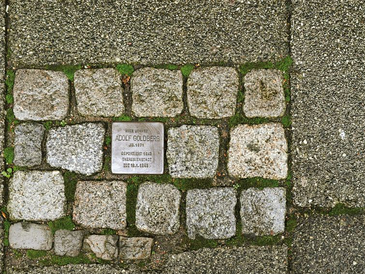The International Holocaust Remembrance Day on January 27 commemorates the millions of people that were persecuted or killed during the totalitarian Nazi regime. With regard to this, the University of Bremen organizes one or more events every year, to which the general public is invited.
Talk on “The Homesickness of Walerian Wróbel”
The Faculty of Law at the University of Bremen is organizing the main remembrance event in this year. At 4 p.m. on Monday, January 27, 2020, the legal scholar Professor Christoph U. Schminck-Gustavus will hold a talk titled “The Homesickness of Walerian Wróbel. A Boy before the Bremen Special Court 1942 – 1943“ (Das Heimweh des Walerian Wróbel. Ein Knabe vor dem Bremer Sondergericht 1942 – 1943).
The event will take place in the GW1 lecture hall, Universitätsallee, 28359 Bremen. It is not only university members that are invited. All people from Bremen and surrounding areas are welcome. For university members, the “Dies Academicus” is in place from 4 p.m. – this means that it is recommended that teaching and work be halted for the duration of the event so that attendance can be made possible.
Remembrance of Walerian Wróbel
Walerian Wróbel was a young Polish forced laborer who was taken by the German occupying forces shortly after his 16th birthday in April 1941 and was sent to Bremen as a forced agricultural laborer. He quickly became extremely homesick on the farm in Bremen-Nord: An attempt to escape was unsuccessful. A few days later, Wróbel set a hay store in a barn on fire but it did not cause any immense damage. He had hoped to be sent back to Poland as a punishment. Instead of this, the boy was relocated to the Neuengamme concentration camp, where he had to carry out hard labor. In proceedings in Bremen in 1942, he was sentenced to death. On August 25, 1942, he was executed in Hamburg.
The International Holocaust Remembrance Day on January 27 has been a national, legally established day of remembrance in Germany since 1996. The day refers to January 27, 1945, the day the Auschwitz extermination camp was liberated.
Contact:
Prof.Dr. Thomas Hoffmeister
Vice President Academic
University of Bremen
Phone: +49 421 218-60031
Email: kon2protect me ?!uni-bremenprotect me ?!.de
Prof.Dr. Gralf-Peter Calliess
Faculty of Law
University of Bremen
Phone: +49 421 218-66207
Email g.calliessprotect me ?!uni-bremenprotect me ?!.de

